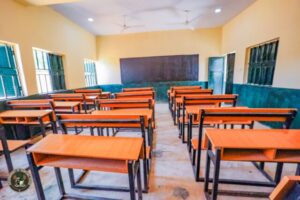
ABUJA – The Federal Government has announced a major reform in Nigeria’s education sector, scrapping the existing Junior Secondary School (JSS) and Senior Secondary School (SSS) structure and replacing it with a 12-year compulsory basic education system.
The policy, which aims to extend mandatory schooling for Nigerian children, will integrate both JSS and SSS levels into a single framework. The new system also prioritizes skill acquisition to better prepare students for the labor market and economic demands.
Minister of Education, Prof. Tahir Mamman, stated that the decision was driven by the need to modernize Nigeria’s education curriculum in response to global technological advancements. He noted that the previous structure was becoming outdated, making it necessary to introduce a curriculum that equips students with relevant skills.
“The world is evolving, and education must keep pace. The country’s curriculum risks becoming obsolete as technology disrupts every industry, including education. This new system ensures students acquire practical skills that connect directly to the economy,” Prof. Mamman said.
The policy aligns with similar initiatives at the state level. In September 2023, Anambra State Governor Chukwuma Soludo introduced free and compulsory education from nursery to JSS 3 in public schools, emphasizing that no child within the school-age bracket should be denied access to learning.
Education stakeholders have welcomed the reform, though concerns remain about its implementation, funding, and the transition process. The government is expected to provide further details on how the new system will be executed across the country.




